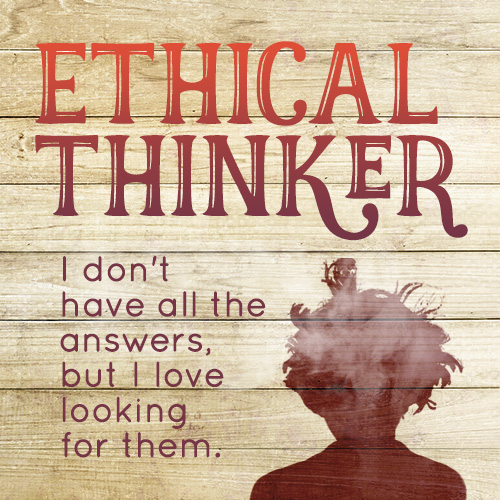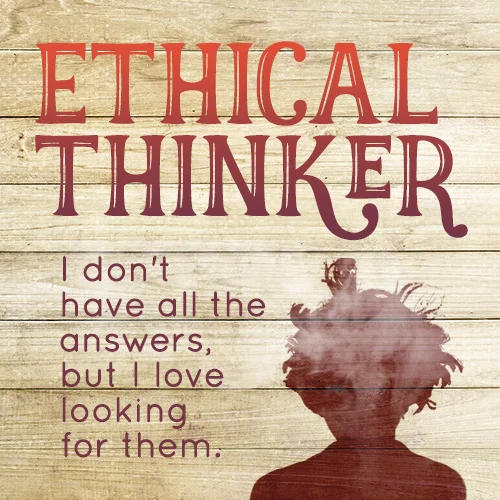We interrupt your regularly scheduled social media to tell you what to do...
/Here in Canada, it is a tradition to observe a minute of silence for Remembrance Day on November 11th at 11:11am. Each year on twitter, as that time approaches, the people of twitter remind others to bring their key tapping to a halt for sixty seconds. Then, around 11:12am, there are people complaining that others didn't observe the minute of silence. Never mind the fact that they may not be Canadian. Never mind the fact that they may be in a different time zone. Somehow people expect that twitter should actually go silent because they are observing a minute of silence.
That's a silly example, but also a real one. We all get so wrapped up in our own context that we forget it is but one piece of a much larger world with many moving pieces.
When our world is falling apart or when our world is celebrating, we expect others to stop, take notice, and shift gears.
Sometimes the world does and sometimes it doesn't.
We're in lock down. Are you with us?
I can think of three situations in the past few years where a city was on lock down while a dangerous killer was on the loose. There were probably others too, but there are three that popped up on my social media radar in a significant way.
The first was the police hunt in the aftermath of the Boston Marathon bombing. I know people in Boston. We probably all know people in Boston. I was concerned, I was checking in with my friends, and I was following the news. Some people and some brands, however, didn't stop, take notice and change course. They just kept tweeting the way they usually would and didn't stop previously scheduled tweets. This was widely criticized, along the lines of this article by Falkon Digital:
“At first a few scheduled tweets went out but as the night went on my own timeline was littered with tweets from brands who really needed to turn off the scheduled tweets and post a more sensitive response or just keep quiet.
Many of the brands were probably oblivious to the fact their tweets were receiving negative feedback and looked heartless in such tragedy. So a note to all you brand managers if you hear of a national or international crisis get on to your social media account (whether via a third party platform or direct) and put those scheduled tweets on hold.”
Hold on for a moment. Who defines what is a national or international crisis?
The Boston Marathon bombing killed three people and injured hundreds of others. A week later, the Rana Plaza garment factory collapsed in Bangladesh killing more than 1000 people. Many American brands were directly implicated and while a select few people were asking those brands questions about their involvement, there didn't seem to be any calls for them to stop their scheduled tweets promoting exactly the type of cheap fashion that led to those deaths. There weren't calls for other people to stop whatever they were tweeting about and just pray for Dhaka.
Speaking of international crises, let's get back to those other lock downs that I remember. Does Moncton ring a bell? Last year, a gunman shot five RCMP police officers, three of them fatally, and was then on the loose. Moncton was in lock down for more than 24 hours. Like with the Boston attack, I was horrified, I was following the news, and I was checking in with friends in Moncton to see how they were doing.
But what was everyone else doing? Well, that probably depends where you live. Canadians were following what was happening, and tweeting their concern, but if I didn't know where the Canada/U.S. border was, I could easily draw it on this trendsmap.
The other lock down I remember was in Ottawa when a man shot a soldier at the War Memorial and then headed into the Parliament Buildings. I remember that one because it was an event of national significance and because I was in lock down alone in my office a few blocks from the shooting. On lock down, I couldn't concentrate on my work, so I had nothing to do but refresh twitter and facebook and try to get more information on what was happening. So I saw exactly how the world didn't stop, take notice and shift gears. I got some "stay safe" messages on facebook, but the rest was people continuing with their usual happy children at the playground, toaster giveaways, fluffy celebrity articles, and so on.
Should I have been horrified? Should I have called them out for not stopping? Or is it just normal?
Let's talk about now
Last week, as the United States celebrated the long overdue Supreme Court ruling on equal marriage, the world celebrated with America. Facebook profiles turned rainbow coloured and #lovewins trended everywhere. Not just in America, it trended around the world. You can't see the Canada/U.S. border on this map.
But looking at a twitter trends map in the United States or anywhere in the world on that day you wouldn't know that four horrible terrorist attacks took place.
- 39 people killed by a gunman in a tourist resort in Tunisia
- 27 people killed by a bomb in a mosque in Kuwait
- 30 people killed by a gunman at a military base in Somalia
- A man beheaded at a manufacturing plant in France
That all happened on the day that love won in the United States and no one noticed. Or at least no one talked about it. Everyone was rightly celebrating the Supreme Court ruling and I am not criticizing them for that, but I do wonder how such horrific events can go unnoticed and undiscussed.
Just a week earlier, nine people were killed in a horrible racist terrorist attack on a church in Charleston, South Carolina. Everyone was talking about it on twitter as they should have been. When it happened, people who went on tweeting the same things they do on any other day were criticized for doing so. But what made the events in Charleston more worthy of stopping, taking notice and changing gears than the events in Tunisia, Kuwait, Somaila and France? I don't think it is just an issue of America being insular (although I think that is part of it), since the United States did take stop and take notice when the Charlie Hebdo attacks took place.
I wonder what would have happened if the Supreme Court ruling on equal marriage had happened on the same day as the Charleston shooting. Would we have been able to mourn, to express outrage, and celebrate at the same time? Or would one have taken over and the other been buried?
Are we in this together?
Does the world go on lock down with us? Does the world grieve with us? Does the world celebrate with us? Does the world express its outrage with us? Does the world call for change with us?
When something big happens, are we in it together?
I would say that we're not. We're all in our own world making decisions about what affects us and what we feel we need to speak out about. I appreciate a gentle nudge, or even a not so gentle nudge, to wake up and pay attention to something. I am a person who likes to pay attention to things.
But I think when we ask people to stop and shift gears, we may be asking too much. Unless we have and we would always do the same thing for them. Take a moment to think about who "them" is. The world is a big place and there are a lot of things going on. Sure you tweeted #bringourgirlsback. But that was one issue, one time. Are you really on top of everything? Do you even know whether the Nigerian school girls were ever found?
Who am I saying this for?
I'm not saying this for myself, because I didn't need you all to stop what you were doing when Canada was on lock down. I only noticed that you didn't stop because it seemed like a double standard. I wondered why your lock down was important and my lock down was not.
I'm saying this for the issues that go unnoticed or that get forgotten quickly. The ones where no one stops, tells everyone to shut up and listen and turn off the scheduled tweets. The ones that get swept under the rug over and over again.
Figuring out how we get those issues talked about is more important to me than whether someone continues their scheduled tweets or posts a picture of their lunch during a crisis. So let's keep talking about racism and #BlackLivesMatter because I love the momentum I've seen on those issues and we need more of it. But let's also talk about #MMAW, which needs more momentum (please do me a favour and take a moment to learn about it if you don't know what it is). And let's keep talking about the many other globally important issues and events.
Rather than telling other people what they need to stop tweeting perhaps we should all stop and think about what we are not bothering to tweet.








